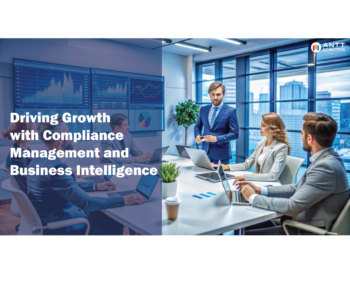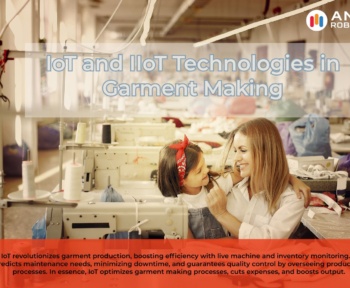Introduction
Technology advancements are driving a significant transformation in the accounting industry in today’s quickly changing business environment. One such revolutionary technology that is reshaping the way accountants work is the Internet of Things (IoT). IoT has the potential to streamline processes, enhance decision-making, and improve efficiency in accounting and finance. Today, we will explore the intersection of IoT, accounting, finance, and the future of the industry.
Understanding IoT in Accounting and Finance
What is IoT?
IoT refers to a network of interconnected devices that can communicate and exchange data with each other over the internet. These devices can range from sensors and smart gadgets to vehicles and machinery. In the context of accounting and finance, IoT can be leveraged to collect real-time data, automate tasks, and provide valuable insights for better decision-making.
IoT Applications in Accounting
– Inventory Management: IoT sensors can track inventory levels in real-time, trigger reorders automatically, and prevent stockouts or overstocking.
– Expense Tracking: IoT-enabled devices can capture and categorize expenses automatically, reducing manual data entry and improving accuracy.
– Asset Tracking: IoT technology can monitor the location and condition of assets, facilitating depreciation calculations and ensure compliance with regulatory requirements.
### Benefits of IoT in Accounting and Finance
– Improved Accuracy: Real-time data collection minimizes errors and reduces the risk of inaccuracies in financial reporting.
– Enhanced Efficiency: Automation of routine tasks frees up time for accountants to focus on strategic activities and analysis.
– Cost Savings: IoT solutions can optimize resource utilization, reduce waste, and lower operational expenses.
Evolution of Technology in Accounting
Historically, the accounting profession has embraced technological advancements to enhance productivity and deliver value-added services to clients. From the introduction of spreadsheets and accounting software to the adoption of cloud computing and artificial intelligence, technology has become an integral part of the modern accounting practice.
Current Trends in Accounting Technology
– Cloud Accounting: Cloud-based accounting software allows for remote access, collaboration, and real-time data sharing.
– Data Analytics: Advanced analytics tools enable accountants to derive meaningful insights from large volumes of financial data.
– Blockchain: Distributed ledger technology like blockchain is revolutionizing audit processes, ensuring transparency and security in financial transactions.
Future Implications of Technology in Accounting
– Automation: Robotic process automation (RPA) and AI-powered tools will automate routine tasks, enabling accountants to focus on value-added activities.
– Predictive Analytics: Predictive modeling and forecasting capabilities will help businesses make informed decisions and mitigate risks proactively.
– Cybersecurity: With the rise of cyber threats, accountants will need to prioritize data security and implement robust cybersecurity measures to protect sensitive financial information.
IoT and the Future of Accounting
Integrating IoT with Accounting Systems
By integrating IoT devices with accounting systems, businesses can streamline workflows, improve data accuracy, and gain real-time visibility into their financial performance. For example:
– Smart Metering: Utility companies can use IoT-enabled meters to track energy consumption, automate billing processes, and monitor cost-saving initiatives.
– Fleet Management: Logistics companies can utilize IoT sensors in vehicles to track fuel consumption, maintenance schedules, and driver behavior, optimizing operational efficiency.
Real-World Scenario: IoT in Audit Procedures
Imagine a scenario where an auditing firm leverages IoT sensors to conduct audit procedures at a manufacturing plant. By monitoring production processes, inventory levels, and quality control metrics in real time, auditors can identify potential risks, verify inventory valuations, and ensure compliance with accounting standards more efficiently.
Challenges and Considerations
While IoT offers numerous benefits for the accounting industry, there are also challenges that need to be addressed:
– Data Privacy: Ensuring the security and privacy of financial data collected by IoT devices is crucial to prevent unauthorized access or breaches.
– Interoperability: Integrating IoT systems with existing accounting software and workflows may require technical expertise and customization.
Regulatory Compliance: Adhering to data protection regulations and industry standards is essential to maintaining trust and credibility in financial reporting.
Conclusion
As we look towards the future of accounting and finance, the integration of IoT and technology will continue to redefine how professionals operate, analyze data, and deliver value to their clients. By embracing IoT solutions, leveraging advanced technologies, and adapting to the changing landscape, accountants can position themselves at the forefront of innovation and drive business success in the digital age.
In conclusion, the convergence of IoT, accounting, and finance holds immense potential for transforming traditional practices, enhancing decision-making processes, and shaping a more efficient and data-driven industry. As we navigate this technological revolution, staying informed, embracing change, and harnessing the power of innovation will be key to unlocking new opportunities and staying competitive in the dynamic world of accounting.
In this post, we have explored the impact of IoT and technology on the accounting industry, highlighting the benefits, challenges, and future implications of these advancements. By understanding the role of IoT in accounting, embracing technological innovations, and preparing for the digital future, accountants can position themselves as strategic partners in driving business growth and success.
Note: This blog post is for informational purposes only and does not constitute professional advice. Readers are encouraged to consult with accounting and technology experts for specific guidance and recommendations tailored to their individual needs and circumstances.





